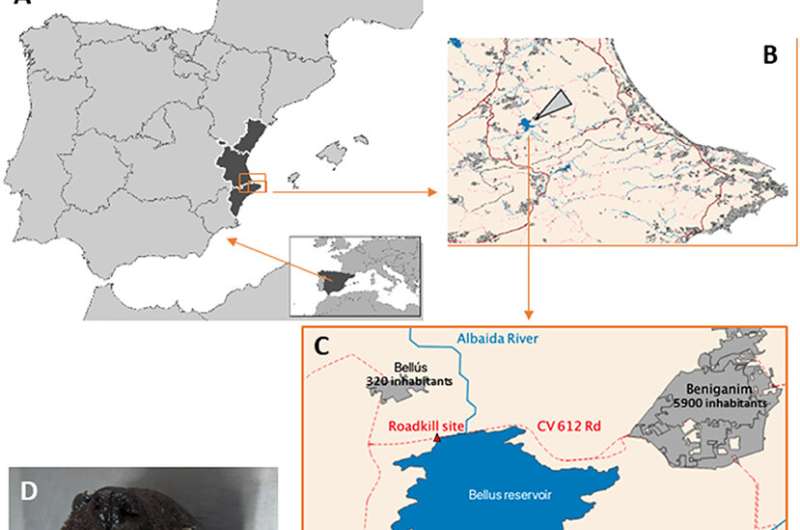Researchers detect the world's first wild river otter coronavirus case

Researchers at the CEU Cardenal Herrera University (CEU UCH) in Valencia, the Institute of Biomedicine of Valencia (CSIC) and the Autonomous University of Barcelona have detected the first case of SARS-CoV-2 coronavirus in a European river otter in Spain. It is a specimen of Eurasian river otter (Lutra lutra), whose remains were found near a reservoir in the Valencian Community. The finding, which is the first case detected of the virus in this species in the country, and the first case in the world in this wild species, has just been accepted in the international scientific journal Frontiers in Veterinary Science.
The virus was detected by two different types of PCR tests on RNA extracted from the animal's nasopharynx swab and from lung tissue and mediastinal lymph nodes. Consuelo Rubio, lead researcher of the CEU UCH Molecular Virology Group and member of the team who made this finding, says, "In the sequencing of the virus, we discovered changes that had already been identified in samples of human patients, which points to the human origin of the virus detected in this wild otter, although its specific combination was different. The contagion could have been caused by contact with sewage contaminated with the virus present in the river area inhabited by the otter." The investigation analyzed samples from remnants of two other otters found in distant areas, which were negative.
First cases in wild animals in Europe
This team of researchers from the CEU UCH, the IBV-CSIC and the UAB also detected in May last year two positive cases of SARS-CoV-2 coronavirus in wild American mink, in two rivers of the province of Castellón. These were the first cases in Europe of the virus in wild animals, which had not been in direct contact with infected people. Already back then, in the article published in the journal Animals, the researchers explained the possible origin of the contagion due to contact of these aquatic life animals with contaminated wastewater in river areas.
CEU professor and researcher Consuelo Rubio says, "different animal species have been involved in the three outbreaks of acute respiratory syndrome caused by other coronaviruses in previous epidemics in 2005, 2012 and 2019. However, given the SARS-CoV-2 pandemic, our findings in both mink and otter highlight the need to establish a surveillance system for this coronavirus in wild mustelids. This would make it possible to assess the risk of these animals becoming reservoirs of SARS-CoV-2, leading to new mutations in the virus that can be re-transmitted to humans or other wild species in case of contact with infected mustelids."
More information: Miguel Padilla-Blanco et al, The Finding of the Severe Acute Respiratory Syndrome Coronavirus (SARS-CoV-2) in a Wild Eurasian River Otter (Lutra lutra) Highlights the Need for Viral Surveillance in Wild Mustelids, Frontiers in Veterinary Science (2022). DOI: 10.3389/fvets.2022.826991
Provided by Asociacion RUVID





















